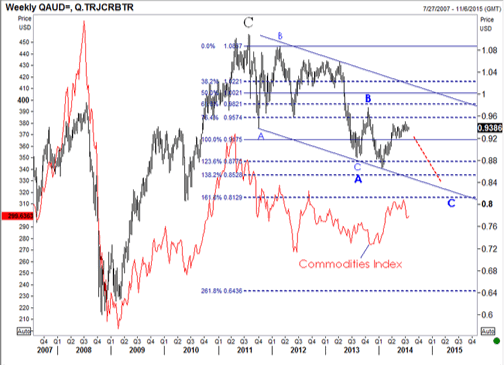“You are a slow learner, Winston.”
“How can I help it? How can I help but see what is in front of my eyes? Two and two are four.”
“Sometimes, Winston. Sometimes they are five. Sometimes they are three. Sometimes they are all of them at once. You must try harder. It is not easy to become sane.”
George Orwell, 1984
“Overall credit growth continues to outstrip growth in value added, which is not sustainable,” said Stephen Green, chief China economist at Standard Chartered.
Financial Times

The Financial Times reported yesterday Chinese debt/gdp is now at a whopping 250%. I thought it was only the slovenly West that doled out debt in such large quantities in order to save its respective economies? Nothing like Westernizing is there…
The total debt-to-gross domestic product ratio in the world’s second-largest economy reached 251 per cent at the end of June, up from just 147 per cent at the end of 2008, according to a new estimate from Standard Chartered bank.
Even GaveKal, who seem to be quite smitten by China, sound concerned: “China’s current level of debt is already very high by emerging markets standards and the few economies with higher debt ratios are all high-income ones,” said Chen Long, China economist at Gavekal Dragonomics, a research advisory. “In other words China has become indebted before it has become rich.”
And from Reuters today, trouble in the Chinese construction industry indicating the real estate market is losing momentum at the least:
SHANGHAI, July 22 (Reuters) – Yields on a short-term bond issued by a troubled Chinese construction company have more than doubled in recent days as hope fades that the firm can avoid defaulting on Wednesday. On July 16, unlisted Huatong Road & Bridge Group Co Ltd announced that it was uncertain about its ability to make payment on a 400 million yuan ($64.4 million) one-year bond issue that matures July 23, after its chief executive was placed under investigation for illegal behaviour.
“The real estate sector in China accounts for 15 percent of China’s economy and impacts 40 other business sectors,” says Reuters.
Some implications of hiding the bad debt in China, according to Prof. Pettis:
- China’s GDP may be overstated by as much as 20-30%.
- Productivity numbers are biased upwards.
- Losses rolled over do not just disappear [there are real implications even in a command-control economy.]
- Effective transfer of this bad debt has fallen on the household sector; it reduces their consumption [which is the sector vital in making the transition to a more balanced economy.]
- Bad debt must be assigned somewhere; socializing debt does not change this.
- When debt stops being hidden, which seems part and parcel to real financial reform in China, GDP growth will become biased downward.
- Three places China can assign the bad debt: households, business, or government.
- Assigning debt and slowing GDP does not necessarily lead to crisis. If the household sector is not assigned, income will grow despite a lower GDP. Rising household income equals a stable social environment and aids the transition to more healthy domestic demand.
Thus, it seems likely sooner rather than later China’s GDP growth
will decelerate faster than is now expected. And though this may be a
healthy change for China as malinvestment is reduced, it will likely not
be a healthy change for its raw-material satellite country, aka
Australia.




